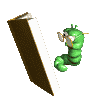ProfessorEd wrote:I just happen to be reading "Sleep thief" by Stanley Coren (interesting book).
He appears to belive death from sleep apnea is possible lathough apparently it has only been observed directly in bulldogs (whose flat faces produce airway problems.
I note also on p 147 that some experts apparently believe thast when oxygen saturation falls below 90%, cells may die.
He also discusses the various indiret effects of apnea, such as much higher rates of driving accidents (a whole chapter).
Our lab has been looking at the effect of short term hypoxia on certain reflexes. One student looked at the effect of hypoxia on the cough reflex
Here is an abstract:
Acute Sustained Hypoxia Suppresses the Cough Reflex in Healthy Subjects
Danny J. Eckert, Peter G. Catcheside, Daniel L. Stadler, Rachel McDonald, Michael C. Hlavac and R. Doug McEvoy
Adelaide Institute for Sleep Health, Repatriation General Hospital, Daw Park; School of Molecular and Biomedical Science, Discipline of Physiology, University of Adelaide, Adelaide; and Department of Medicine, Flinders University, Bedford Park, South Australia, Australia
Correspondence and requests for reprints should be addressed to Danny Eckert, B.Sc. (Hons), Adelaide Institute for Sleep Health, Repatriation General Hospital, Daw Park, South Australia, Australia, 5041. E-mail:
danny.eckert@rgh.sa.gov.au
Rationale: An intact cough reflex is important to protect the lung from injurious substances and to clear excess secretions. A blunted cough reflex may be harmful or even fatal in respiratory disease. Hypoxia is common in respiratory disorders and has been shown to have depressant effects on respiratory sensation and ventilation. We hypothesized that it might also suppress the cough reflex.
Objectives: To determine if acute hypoxia increases cough threshold and cough tachyphylaxis to inhaled capsaicin.
Methods: On two occasions, 16 healthy subjects inhaled a saline control followed by doubling doses of capsaicin aerosol (range, 0.49–500 µM) every minute for 15 s during controlled ventilation ( 190% baseline) with isocapnic hypoxia (SpO2, 80%) or isocapnic normoxia, in random order. When a subject responded to a dose with five or more coughs, the next doubling dose of capsaicin was administered continuously for 60 s to assess acute tachyphylaxis.
Main Results: The capsaicin concentration required to elicit five coughs was significantly higher during isocapnic hypoxia compared with normoxia (29.6 ± 16.0 vs. 23.4 ± 15.6 µM, p = 0.01). During continuous capsaicin inhalation, significantly more coughs were evoked in the first 10 s compared with the last (2.3 ± 0.3 vs. 1.3 ± 0.3, p < 0.01), indicating cough tachyphylaxis. However, the decrease was the same during hypoxia and normoxia (–1.3 ± 0.4 vs. –0.9 ± 0.6, p = 0.54).
Conclusions: Acute isocapnic hypoxia suppresses cough reflex sensitivity to inhaled capsaicin. This finding raises the possibility that the cough reflex may be impaired during acute exacerbations of hypoxic-respiratory disorders.
Another study:
The effects of hypoxia on load compensation during sustained incremental resistive loading in patients with obstructive sleep apnea
Michael C. Hlavac,1,2 Peter G. Catcheside,1,3 Amanda Adams,1 Danny J. Eckert,1,3 and R. Doug McEvoy1,2,3
1Adelaide Institute for Sleep Health, Repatriation General Hospital, Daw Park, South Australia; 2Department of Medicine, Flinders University, Bedford Park, South Australia; and 3School of Molecular and Biomedical Science, Discipline of Physiology, University of Adelaide, South Australia, Australia
Submitted 22 December 2005 ; accepted in final form 26 March 2007
Inspiratory load compensation is impaired in patients with obstructive sleep apnea (OSA), a condition characterized by hypoxia during sleep. We sought to compare the effects of sustained hypoxia on ventilation during inspiratory resistive loading in OSA patients and matched controls. Ten OSA patients and 10 controls received 30 min of isocapnic hypoxia (arterial oxygen saturation 80%) and normoxia in random order. Following the gas period, subjects were administered six incremental 2-min inspiratory resistive loads while breathing room air. Ventilation was measured throughout the loading period. In both patients and controls, there was a significant increase in inspiratory time with increasing load (P = 0.006 and 0.003, respectively), accompanied by a significant fall in peak inspiratory flow (P = 0.006 and P < 0.001, respectively). The result was a significant fall in minute ventilation in both groups with increasing load (P = 0.003 and P < 0.001, respectively). There was no difference between the two groups for these parameters. The only difference between the two groups was a transient increase in tidal volume in controls (P = 0.02) but not in OSA patients (P = 0.57) during loading. Following hypoxia, there was a significant increase in minute ventilation during loading in both groups (P < 0.001). These results suggest that ventilation during incremental resistive loading is preserved in OSA patients and that it appears relatively impervious to the effects of hypoxia.
So there are studies out there which is looking at the effect of hypoxia. I have no doubt there are other studies which look at the effect of hypoxia on cell death in mice.
The question is, does hypoxia cause irreversible damage to cells in OSA patients? If so, how does this effect cognitive function?













